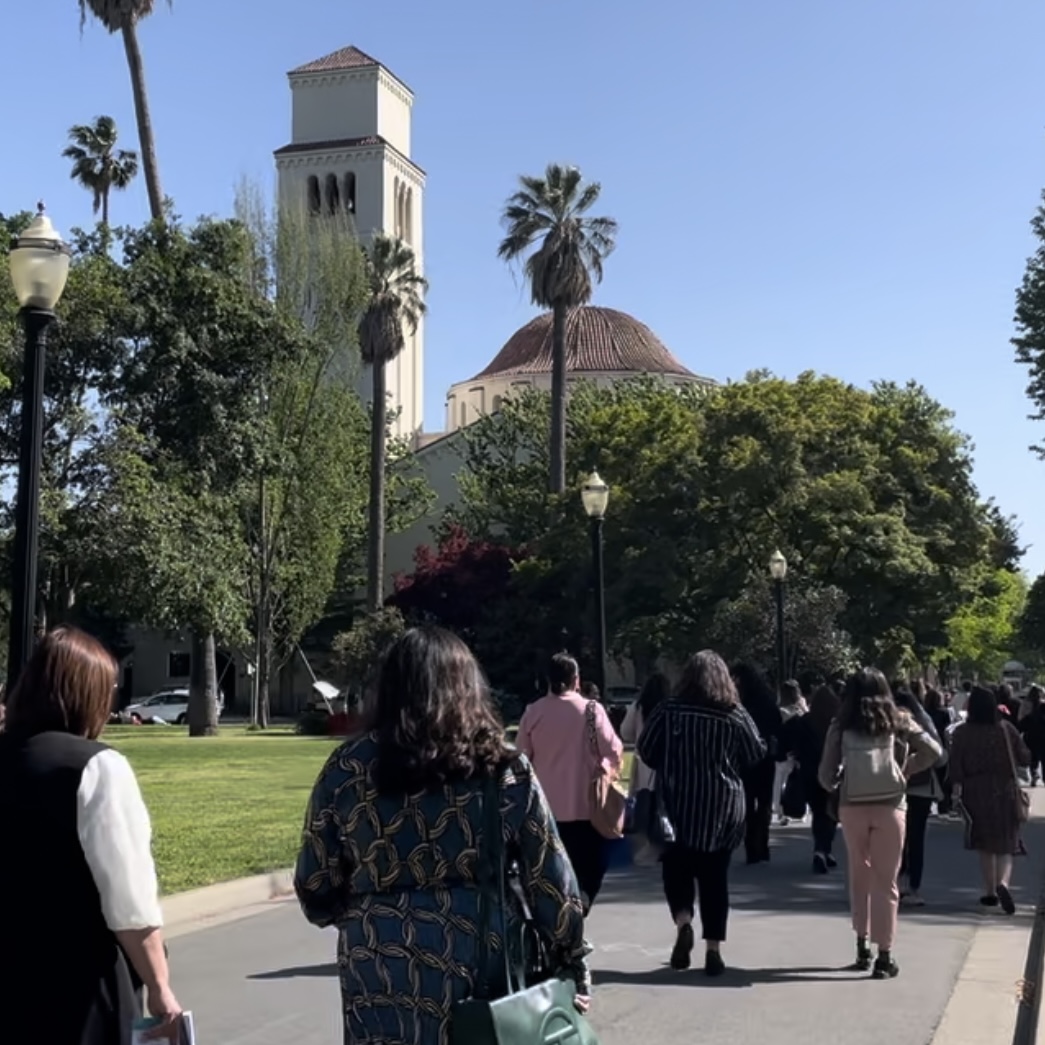Monday, August 28, 2017, I sat in the middle of the night, staring at my computer screen, braiding and unbraiding mi trenza. Each time, I would pull on each strand, tighter and tighter, in an attempt to neatly perfect my braid. In some ways, it was self-soothing, a coping mechanism to calm the imposter syndrome that overwhelmed me. In other forms, it was a reminder of what I was capable of accomplishing. My braid was a symbol of my strength, knowledge, the generational validation from my ancestors, and all the affirmation that brought me to my desk that summer night. Once I finally left my braid alone, I accepted it for what it was, a trenza greñuda, both literally and figuratively.
In her article, Mascaras, Trenzas, y Greñas: Un/Masking the Self While Un/Braiding Latina Stories and Legal Discourse, Montoya (1994) describes the various ways that Latina/Chicana students engage in the process of masking and unmasking. In the context of Montoya’s (1994) scholarly work, masking is a tool to navigate dominant hegemony, specifically within higher education. As I began to write, I understood that there was a possibility that my research focus, approach, goals, and positionality could be critiqued. I strived to take part in research approaches that elevate the voices of the Latinx immigrant community while blurring and challenging dominant perspectives and research process. I thought about my writing approach, the language to use, my language structure, I was searching for a “mask” to hide behind to get me through the application process or to make me more palatable for admissions.
I reflected on the various advice I received about the doctoral application process. Some related the message that I should be impartial, leave the personal out of my statement of purpose, and only focus on my academic and research achievements. Like many Students of Color, my academic identity is informed and shaped by my lived realities and intersectional identities. Grappling with how to begin, I recognized that I needed to continue to weave together the personal, academic, and various scholarships that shaped me (Montoya, 1994). I needed my trenza greñuda, the merging of my intersectional identity and lived realities that contradict and challenge each other, as a Latina/Chicana in higher education. My imposter syndrome did not stem from questioning my intelligence or worthiness of being a doctoral student. I was struggling to situate myself in places unknown and the feeling of not being able to bring my whole self in the initial doctoral journey.
The decision to share a “snapshot” narrative of my initial doctoral application journey served as a cathartic process and a tool to highlight the challenges faced by first-generation Latinx/a/o students. Through my narrative, I seek to provide consejos that can serve a guide for Latinas navigating new spaces in academia, as they pursue a doctoral degree. Continue reading to access consejos for managing the graduate school application process:
- Research Doctoral Programs: Take the time to search for the various programs in the department of your interest. Keep in mind that you are looking to apply to a doctoral program that fits your area of study. The university’s standing should be secondary.
- Research Faculty: When searching for doctoral programs make sure to identify faculty that have a similar research interest as you. Read their latest article to gain insight into their methodological, theoretical, epistemological approach. If interested in work, send them an email and attempt to schedule a video meeting or phone call.
- Reflection: Make sure to take time to reflect on what components you seek in a femtor/mentor. If you have the opportunity to meet with faculty asked them questions or their femtorship/mentorship approach and their expectations for their students.
- Attend Graduate Program Information Sessions: Make sure to attend webinars or in-person information sessions to learn more about the graduate program. Have specific questions ready. You want to leave feeling like your most important questions were answered. These questions will vary by the applicants (i.e., housing on campus, funding, child care, etc.). Reach out to the department program after you attended the information session and ask if they have application fee waivers for low-income or first-generation students.
- Application Process: Review all components of the application process. To keep track of all portions of the application that need to complete, create a task list per program you are applying to, or an excel sheet. The excel sheet should contain all the necessary information about the program you are applying to (deadlines, list specific items that need to be submitted, program-specific fellowship, name, and email of professors interested in work with, etc.). Set internal deadlines for completing specific tasks related to the application. Make sure these deadlines are base on your schedule and your availability. Be realistic, start early, work on the application at least a couple of hours a day to not overwhelm yourself. Send out emails requesting letters of recommendation early on, even if you don’t have your application or statement of purpose completed. However, set a deadline for when you will be emailing your statement of purpose, CV/resume, and an explanation on why you are a good fit for the program, to assist in writing their letter of rec.
Be Unapologetic: Highlight your authentic self, recognize that you bring with you a wealth of knowledge shaped by your lived realities and academic experiences. Incorporate personal, volunteer, internship, or work experiences that weave together to inform your area of interest and approach to research. Allow yourself to envision your goals and aspirations! Don’t question your worthiness, your perspectives, your knowledge, you are exactly where you should be! You are not on this journey alone.
Ruby Osoria is currently a Ph.D. student at the University of California, San Diego. She has an M.A. in Social and Cultural Analysis of Education and a bachelors degree in Sociology and minor in International Immigration.


